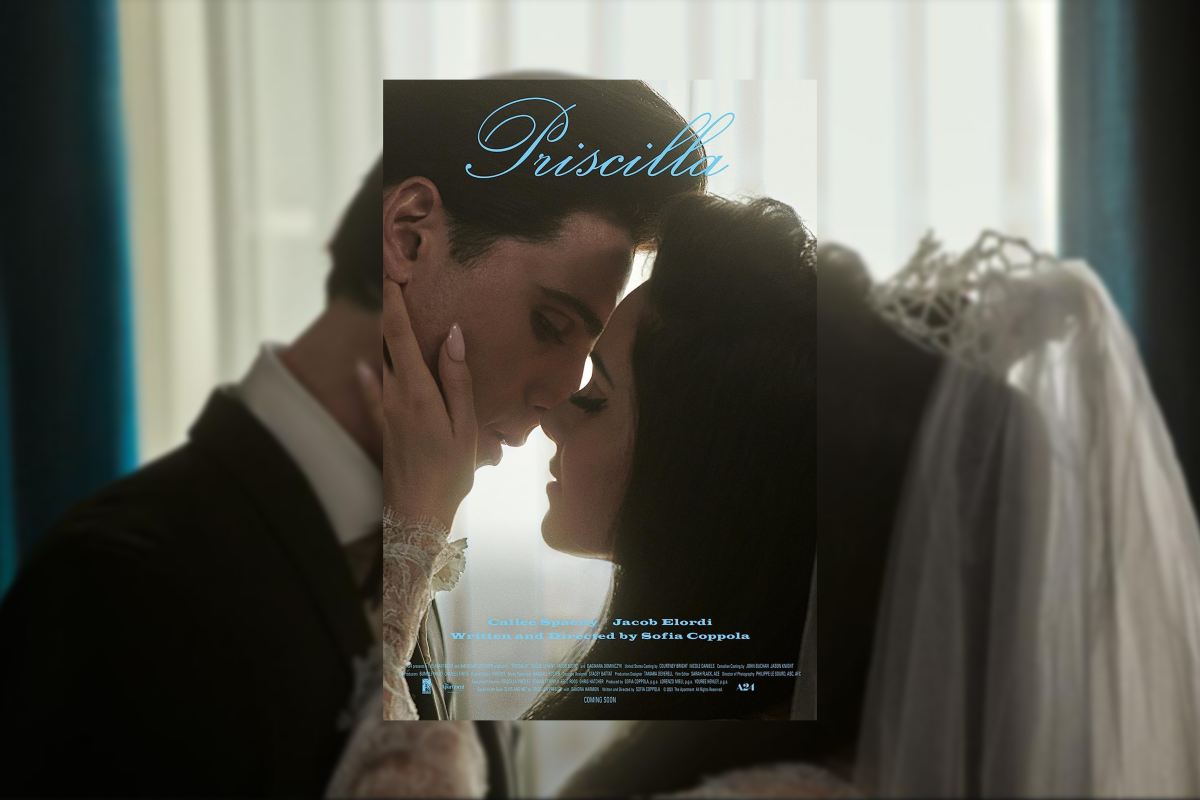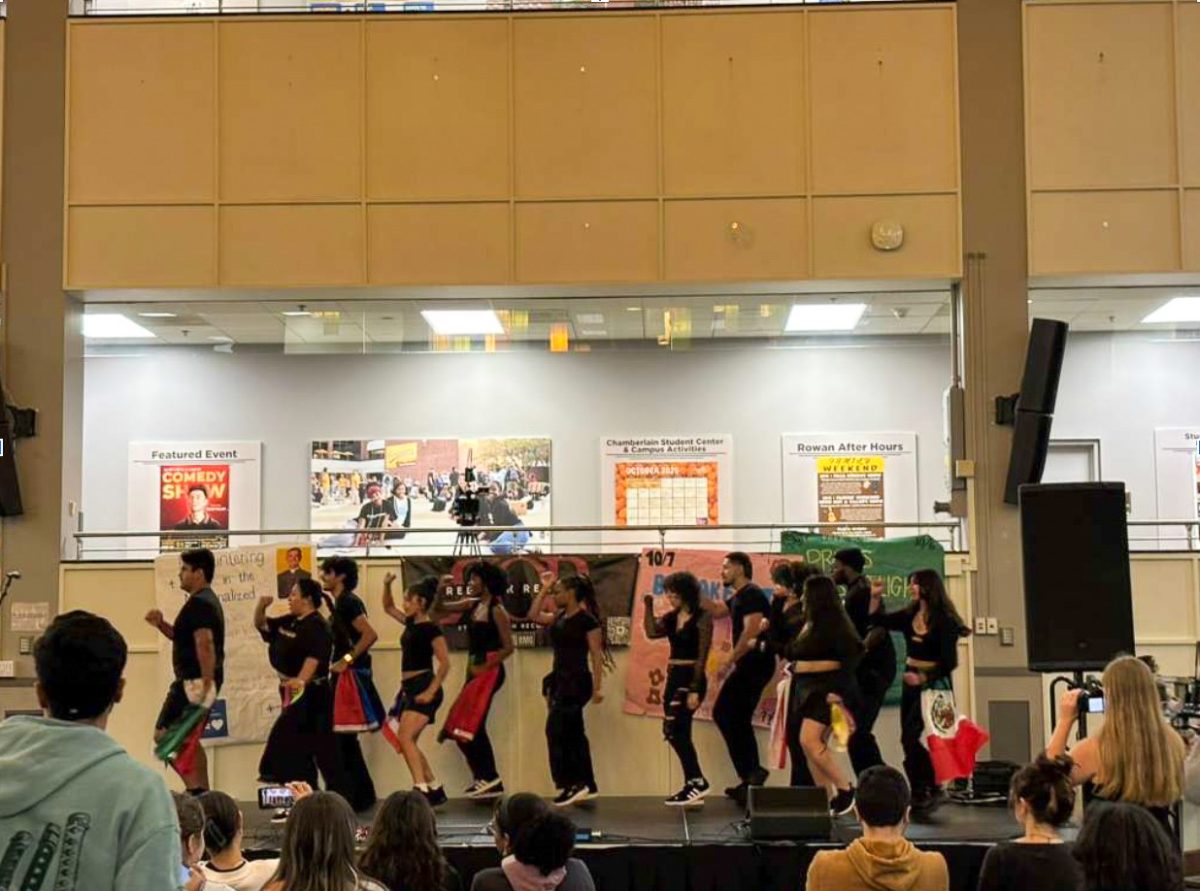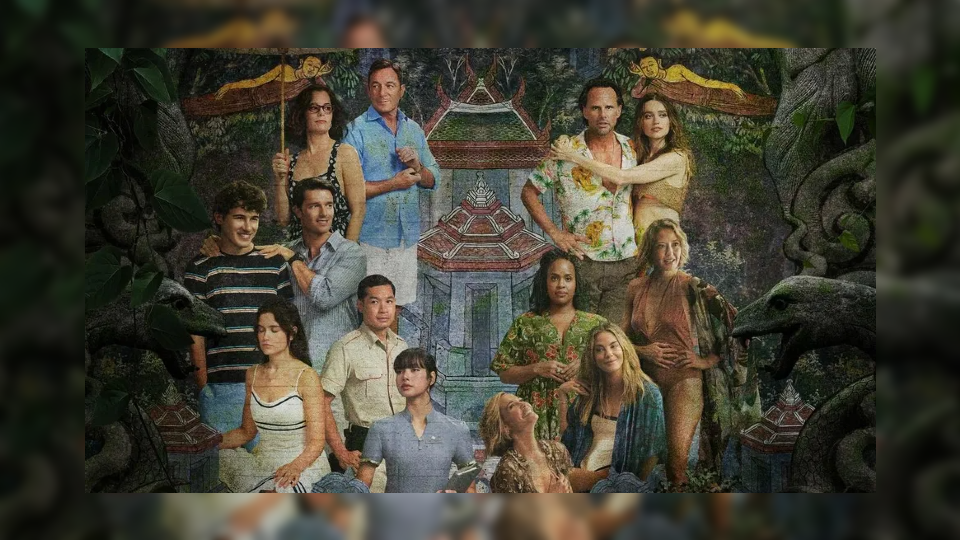Elvis Presley was the biggest sex symbol for women in the late ‘50s and early ‘60s. Whether it was his chart-topping music, erratic dance moves, or devilishly good looks, the “King of Rock n’ Roll” had millions of young girls in a chokehold. These women could only imagine getting with Elvis, a man who was the biggest star in the world at the time. For one lucky lady, Priscilla Beaulieu, this teenage fantasy suddenly became a reality.
Starring Cailee Spaeny, “Priscilla” examines Elvis through the eyes of the woman he married. The director-written screenplay was adapted from the 1985 autobiography “Elvis and Me” written by Priscilla. Directed by Sofia Coppola, this film masterfully details the bliss, oddities, and nightmares that come with being the wife of the King.
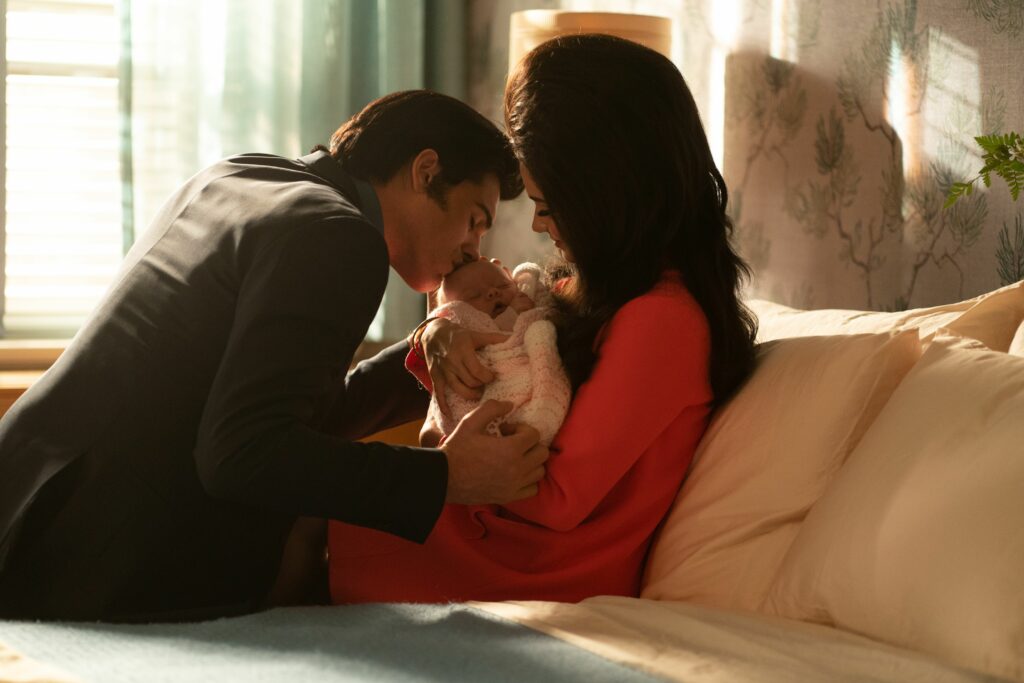
The film starts in 1959 at a diner on an American military base in West Germany, a place Priscilla’s family moved to from Texas because her father is an officer in the Air Force. A young Priscilla can be seen sitting at the counter doing her homework when she is approached by one of Elvis’s friends (Luke Humphrey) who asks her if she likes the singer, to which she responds, “Of course, who doesn’t?” He invites her to a party at Elvis’ house because he just got drafted for military service and apparently loves talking to people from back home. After getting permission from her parents, Priscilla is whisked off to see her celebrity crush, a meeting that would quickly change the trajectory of her life.
The eccentricness of their relationship is obvious from the start. For one, Priscilla is 14 when she meets the 24-year-old Elvis (Jacob Elordi), a ten-year age gap that simply makes him whistle and say, “You’re just a baby.” Upon their second meeting, Elvis, who is fully aware Priscilla is in ninth grade, becomes eerily comfortable and asks her, “What do you say we go somewhere real quiet?” While nothing more happens than a friendly conversation and some kissing, the drastic height difference between the two actors, combined with Spaeny’s utter resemblance to a pre-teen, creates a profound sense of discomfort and disgust when watching Elvis and Priscilla interact.

Elvis inevitably returns to the States and goes incognito for months, even though he reassures Priscilla that he won’t forget about her. Priscilla, who copes with her loneliness by dreamily gazing at photos of him on records and in magazines, is relieved when Elvis randomly calls one day to tell her he’s arranging for her to visit him in Memphis. This trip has Priscilla meeting his entourage, getting swept off to Vegas, and getting addicted to the sleeping medications Elvis makes her take, as she eventually reaches out her hands asking for the pills herself.
By her senior year of high school, Priscilla moves into Graceland permanently to live with Elvis. He even pays for her to attend catholic school as her parents won’t allow her to stay if she doesn’t finish her education. After all, what’s more normal than paying for your secret girlfriend’s schooling to make sure she graduates and can continue to stay with you? While Elvis is off filming his movies, he buys Priscilla a dog to keep her company, while sort of keeping her like a pet of his own. Ostracized from her classmates, Elvis dictates every aspect of Priscilla’s life, including how she dresses, does her makeup, and where she is allowed to go (Elvis forbids her from getting an after-school job at a salon because according to him, he needs her to be there for him when he calls).
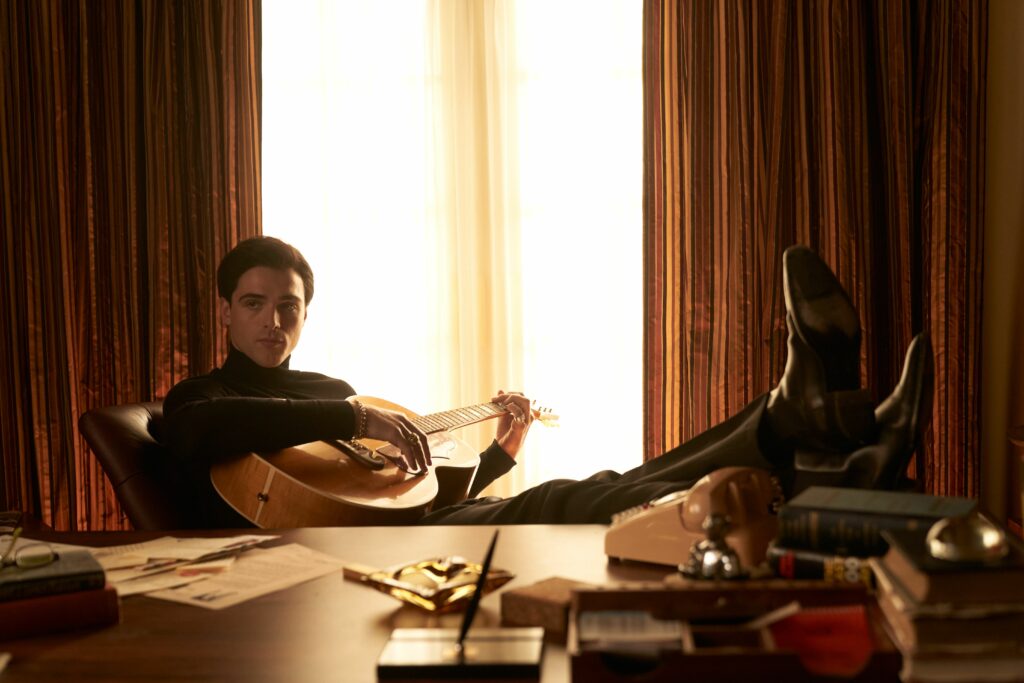
He even refuses her sexual desires, as he claims he’ll know when the “time is right,” even though it’s no problem during the flings Priscilla reads about in the tabloids with his co-stars or the mistresses he meets when he’s away, letters from whom Priscilla finds amongst Elvis’ stuff. As the camera pans out on Priscilla as she looks out a window, it’s clear Elvis’ mistress isn’t just bound by Graceland’s walls, but trapped by her marriage and the overbearing control of her husband.
“Priscilla” reveals an Elvis that the public has not seen before. Showing all that comes with falling in love with Elvis, Coppola takes viewers on a journey starting with the initial spark of romance and the quick descent into manipulation, gaslighting, emotional turmoil, and physical and verbal abuse. Elordi does an amazing job portraying the King, showing all the good and bad sides of such a complex man, a performance that feels less like acting and more like spectating two people in a toxic relationship.
Looking at Elvis through the female gaze, the film doesn’t do it through the eyes of love-stricken fans, but through those of the woman who was with him behind closed doors. Unlike Baz Luhrmann’s 2022 film “Elvis”, which made Priscilla a side-character to showcase the extravagant career of a music legend, “Priscilla” looks at Elvis through a more grounded and realistic view, showing not just the illustrious figurehead he was for music, but the truth about what kind of a husband he was. Spoiler: he wasn’t a good one.
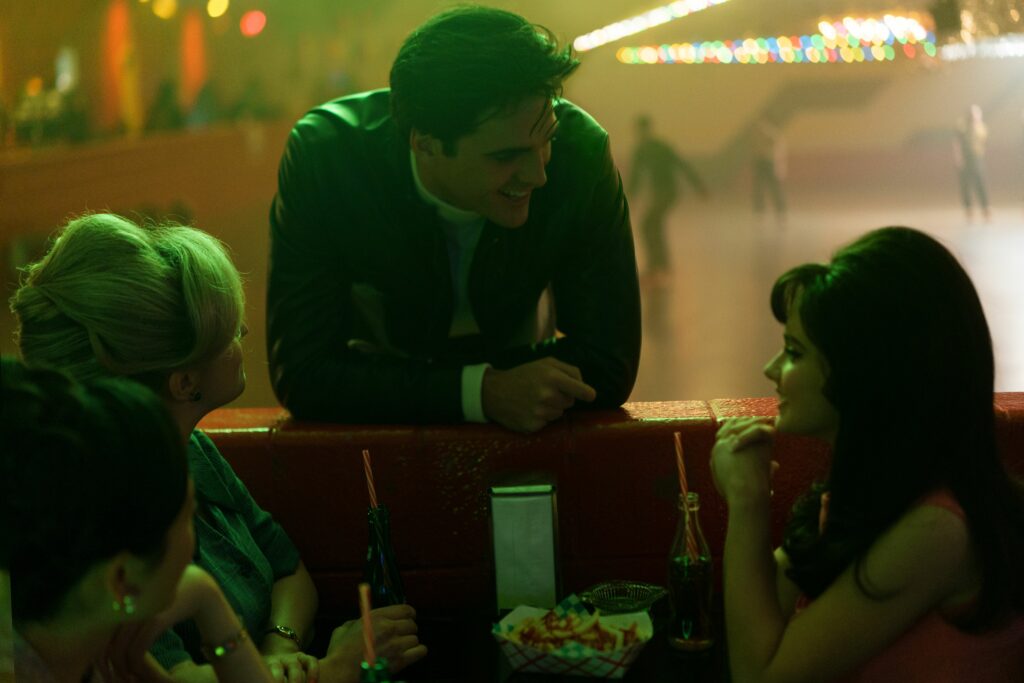
The film ends with Priscilla announcing she’s leaving their marriage. As she gathers her belongings, she says goodbye to the Graceland staff that have watched her grow from a young schoolgirl to a victimized wife, and drives off while Dolly Parton’s song “I Will Always Love You” fittingly plays. For the first time in a long time, Priscilla can willingly leave, free to reclaim her future and build a name for herself outside the label of “Elvis’ wife.”
The film leaves a lot of unanswered questions about the shady matters that went on behind the scenes. Was Priscilla sought out by Colonel Tom Parker, Elvis’ controlling manager who was a key character in Luhrmann’s film but merely an off-screen character in “Priscilla”, as a prop to portray Elvis as a family man to the media? Did Priscilla’s parents keep allowing her to visit Elvis because he was paying them off, even though they were against the relationship from the start? Was Elvis not having sex with Priscilla initially because of his Puritan beliefs or because he didn’t want a run-in with the law?
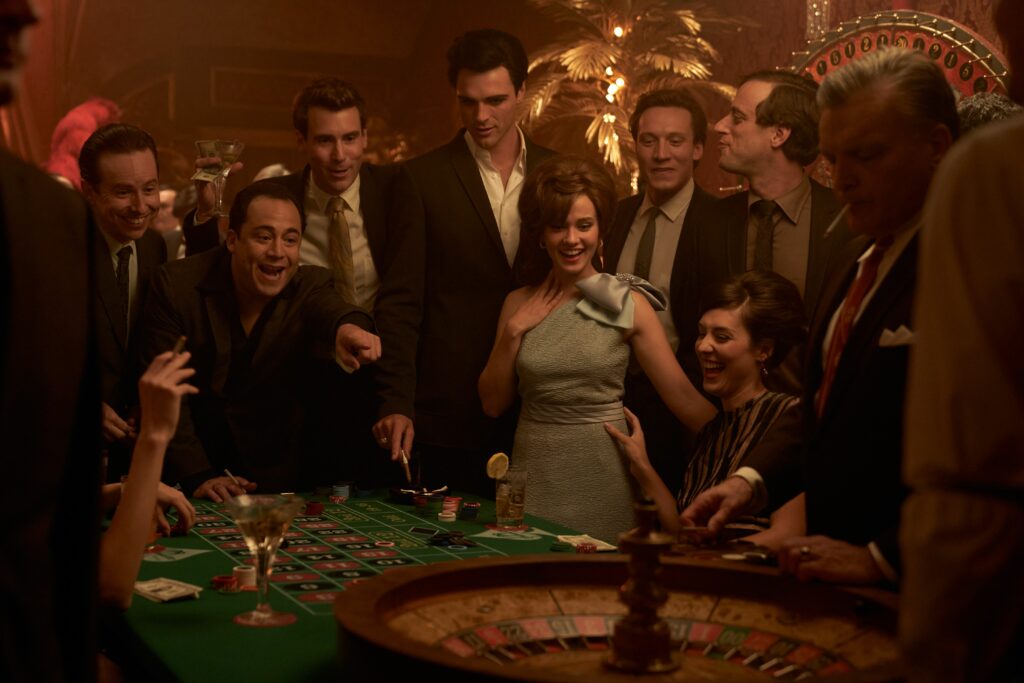
All of these rumors are left up to speculation of the audience, but one thing is very clear: Priscilla Presley had her childhood stolen from her. Showing the fire of first love, Coppola beautifully tells the unfiltered story of Elvis and Priscilla, one that saw a teenage girl’s dream come true and led her to inevitably lose herself at the expense of the man she admired.
Despite what Elvis’ fans may say about the criticism of the star, Priscilla was an executive producer on the film and applauded Coppola’s direction. So, whether they like it or not, “Priscilla” is a raw and accurate portrayal of a pinnacle relationship in the 1960s, unmasking the dark secrets behind the heartthrob that encapsulated the young girls of that era.
For comments/questions about this story DM us on Instagram @thewhitatrowan or email [email protected]

































































































































































































